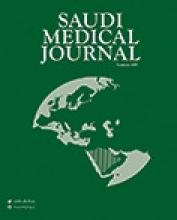18 OCTOBER 2017 | MONTEVIDEO - Heads of State and Government and ministers from around the world today committed to new and bold action to reduce suffering and death from noncommunicable diseases (NCDs), primarily heart and lung diseases, cancers and diabetes, the world’s leading killers.
Governments endorsed the Montevideo Roadmap 2018-2030 on NCDs as a Sustainable Development Priority at the opening of the three-day Global Conference on Noncommunicable Diseases in Montevideo, hosted by WHO and the Presidency of Uruguay.
The pledge follows agreement by world leaders to reduce “premature” deaths from NCDs by one-third by 2030 as part of the United Nations’ Agenda for Sustainable Development. Today, NCDs kill 40 million annually, more than any other cause of death. Of these deaths, 15 million occur prematurely among people aged 30-70 years, and 7 million in low- and low-middle income countries.
“It is shocking to see the growing toll that diseases like cancer and diabetes are taking on the people who can least afford healthcare,” said WHO Director-General Dr Tedros Ad-hanom Ghebreyesus.
“Governments must act on pledges to prevent these diseases in the first place, and to en-sure that people can obtain services to treat them,” he added. “Failure do to this imposes massive costs on individuals and communities. It totally contradicts global commitments to sustainable development.”
Co-conference organizer, President of Uruguay Dr Tabaré Vázquez, said the Montevideo Roadmap represented a bold commitment by governments to intensify action to protect people from the harms of NCDs.
“Governments should be fully committed to reducing the toll from NCDs, as the human and economic costs are far too great to ignore,” said Dr Vázquez. “This places a heavy responsibility on governments to act. But by taking determined action to protect people from the main risks causing NCDs, we will make it easier for people to enjoy healthier lives, while supporting communities and countries to grow and develop strongly.”
The Montevideo Roadmap highlights the need for coordinated and coherent action from all sectors and the whole of society, as many of the main drivers of ill health lie outside the control of health ministries, systems and professionals. Non-State actors, including civil society and industry, have important roles to play.
It also points out that the bulk of NCD deaths could have been prevented by action against tobacco, air pollution, unhealthy diets, physical inactivity, and harmful use of alcohol – as well as by improved disease detection and treatment.
Dr Vázquez added: “Beating NCDs, and promoting health, are issues for everyone and across every area of government. Finance ministries save lives by taxing tobacco, alcohol and sugary drinks, by cutting consumption and raising revenues to treat NCDs. Trade and investment agreements should not be used as an excuse to look the other way, wash our hands and not protect the public health of our citizens. Education ministries need to ensure our youth are well informed and taught how to make the healthy choice, that schools make available healthy food and provide opportunities for play and recreation.”
The Montevideo Roadmap identifies a range of challenges, including:
uneven and insufficient progress to reduce premature deaths from NCDs;
influence of the private sector on governments to prioritize trade over public health goals;
lack of high-level political leadership to ensure that health promotion and NCD pre-vention and control are part of all areas of government policy.
Dr Tedros, who last week announced the launch of a new WHO high-level commission on NCDs, added: “This conference is a critical opportunity to accelerate efforts to get ahead of noncommunicable diseases. We must be prepared to have some tough conversations, and to take brave action.”
“One vital step is for all countries to follow trailblazers like Uruguay that have ratified the protocol to eliminate the illicit trade in tobacco products,” added Dr Tedros. “Ensuring that this protocol can come into force next year is key to advancing the impact of the WHO Framework Convention on Tobacco Control.”
The Montevideo Roadmap will guide global preparations for next year’s United Nations General Assembly third High-level Meeting on NCDs. The meeting will assess countries’ pro-gress in meeting the target of reducing premature NCD deaths by 25% by 2025 and then by a third by 2030.
Available from: http://www.who.int/mediacentre/news/releases/2017/reduce-noncommunicable-diseases/en/
- Copyright: © Saudi Medical Journal
This is an open-access article distributed under the terms of the Creative Commons Attribution-Noncommercial-Share Alike 3.0 Unported, which permits unrestricted use, distribution, and reproduction in any medium, provided the original work is properly cited.






